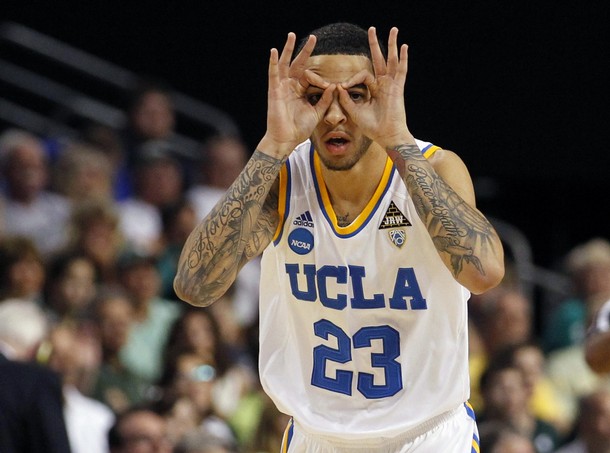Most people’s exposure to the world of sports agents begins and ends with Jerry Maguire. But contrary to the film, what really goes on between agents and athletes is much less sterile.
In a world where the name of the game is often impressing teenage athletes by any means necessary, controversy is inevitable. Case in point, these five sports agent scandals that stole headlines from the athletes they were supposed to be representing.
The Tar-Heel Trio
It’s probably not a stretch to say that most high-profile college athletes receive rule-violating special benefits. In the case of three North Carolina football players, these benefits came in the form of cash-filled packages sent by an agent wanting their business when they decided to turn pro.
In a 2010 investigation, future NFLers Greg Little, Marvin Austin, and Robert Quinn were discovered to have received jewelry, special travel accommodations, and around $24,000 from prospective agent Terry Watson. In addition to having his agent-license revoked, Watson received 30 months of probation and a $5,000 fine after entering a plea deal over 13 counts of athlete-agent inducement. Comparatively, the players themselves (who were in the League by the time this story broke) got off easy, but are banned from all UNC athletic facilities.
Fleisher’s Contracts
The NBA was quite scandal-ridden in the 2000s. Most remember well the Tim Donaghy controversy that revealed the ex-referee had manipulated games to beat Vegas and online odds 57% of the games he worked from 2003 to 2007.
What fewer remember is the Joe Smith scandal before that. After the former number one overall pick left draftees Golden State for a brief stint in Philly, Smith signed a $1.75 million deal with Minnesota. Considering the power forward had passed on an $80 million extension with the Warriors, this seemed like a strange move for he and agent Eric Fleisher.
But Smith, Fleisher, and the Wolves were up to something beyond just helping stay under the cap limit. The NBA’s Larry Bird rule dictates that teams can go above the salary cap to re-sign their own players. This motivated the three to negotiate three small one-year deals, in an exchange for an under the table deal guaranteeing Smith a mega-contract for year four. When the scheme was uncovered, Fleisher made NBA history by becoming the first agent ever fined by the league ($57,000, 15 months imprisonment, and a six month suspension).
Honeycutt-ing Loose
Getting passed some spending money in college might be nice at the time, but accepting such gifts without returning the favor can come back to bite you big time. Such was the case with UCLA basketball star Tyler Honeycutt, who accepted over $55,000 from agent Noah Lookofsky during his two years in LA and even while still in high school.
When the small forward decided to go to the NBA, Honeycutt also decided to go with another agent. A few years later, Lookofsky came clean to SBNation about his relationship to Honeycutt. He revealed in detailed reports that he provided Honeycutt and his family with money for rent, a downpayment on a new car, airline tickets, and more. UCLA launched an investigation into the pair’s relationship, but after they refused to surrender any further details, the investigation was closed.
‘My Clients Weren’t Cheating (This Time)’
Usually, those accusing sports agents of committing wrongdoing are given the benefit of the doubt. But in 2013, the World Anti-Doping Agency made a false accusation that may cost them several million dollars. Days before the 2016 New York Marathon, investigators began monitoring Russian sports agent Andrey Baranov on suspicions that he was bribing race officials to allow athletes using PEDs to enter the heavily-tested race.
Although Baranov did represent athletes that had been caught doping in the past, he was also a whistleblower in a different scandal ahead of the 2012 Olympics. Nothing came to fruition in the marathon investigation, and Baranov filed a $5 million case against WADA for defamation.
